Collective Molecular Activities of the Plant: Montanoa Karwinskii
Overview of Ingredients
16 All known Ingredients in Total
Unique ingredients have been isolated from this plant.Plant-Ingredients Associations were manually curated from publications or collected from other databases.
13 Ingredients with Acceptable Bioavailablity
Unique ingredients exhibit acceptable human oral bioavailablity, according to the criteria of SwissADME [PMID: 28256516] and HobPre [PMID: 34991690]. The criteria details:SwissADME: six descriptors are used by SwissADME to evaluate the oral bioavailability of a natural product:
☑ LIPO(Lipophility): -0.7 < XLOGP3 < +5.0
☑ SIZE: 150g/mol < MW < 500g/mol
☑ POLAR(Polarity): 20Ų < TPSA < 130Ų
☑ INSOLU(Insolubility): -6 < Log S (ESOL) < 0
☑ INSATU(Insaturation): 0.25 < Fraction Csp3 < 1
☑ FLEX(Flexibility): 0 < Num. rotatable bonds < 9
If 6 descriptors of a natural plant satisfy the above rules, it will be labeled high HOB.
HobPre: A natural plant ingredient with HobPre score >0.5 is labeled high human oral availability (HOB)
8 Ingredients with experimental-derived Activity
Unique ingredients have activity data available.Ingredient Structrual Cards
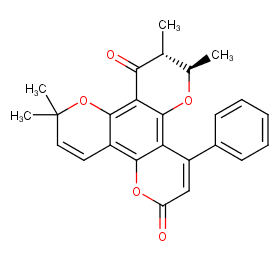
Ingredient ID: NPC89472
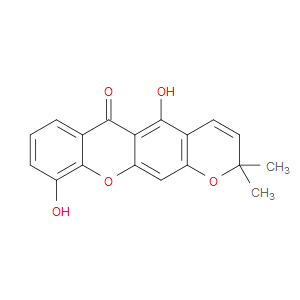
Ingredient ID: NPC6633

Ingredient ID: NPC59551
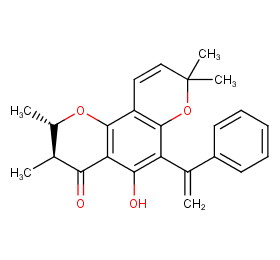
Ingredient ID: NPC59060
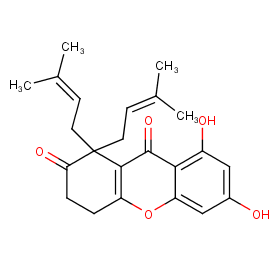
Ingredient ID: NPC308115

Ingredient ID: NPC302603
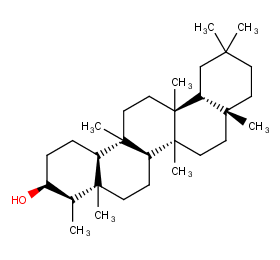
Ingredient ID: NPC292419
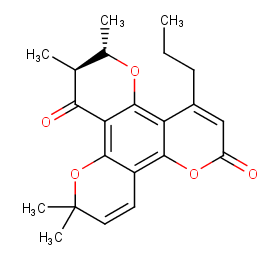
Ingredient ID: NPC273548
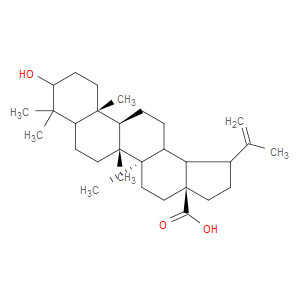
Ingredient ID: NPC264317
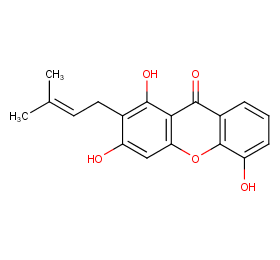
Ingredient ID: NPC218701
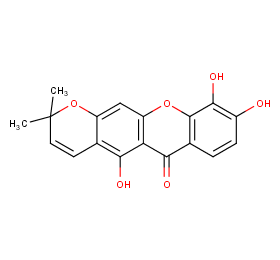
Ingredient ID: NPC200246
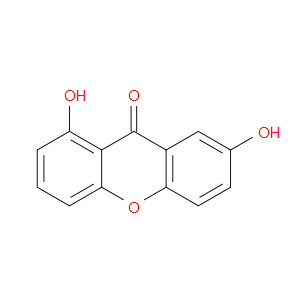
Ingredient ID: NPC18457

Ingredient ID: NPC184234

Ingredient ID: NPC180777
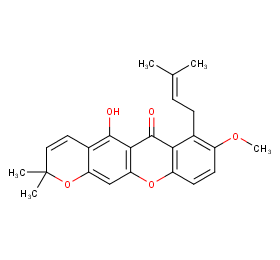
Ingredient ID: NPC158259
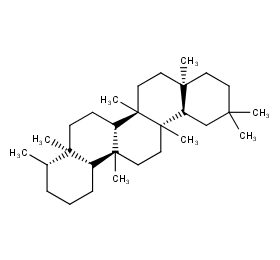
Ingredient ID: NPC156342
Classification of Human Proteins Collectively Targeted by the Plant
Detailed Information of Target Proteins
| Target Type | Protein Class | Gene ID | Protein Name | Uniprot ID | Target ChEMBL ID |
|---|---|---|---|---|---|
| Therapeutic Target | Nuclear hormone receptor subfamily 1 | NR1H4 | Bile acid receptor FXR | Q96RI1 | CHEMBL2047 |
| Therapeutic Target | Oxidoreductase | MAOA | Monoamine oxidase A | P21397 | CHEMBL1951 |
Clinical trials associated with plant from natural product (NP) & plant level:
| Clinical trials type | Number of clinical trials | |
|---|---|---|
| 2 | ||
| NCT ID | Title | Condition | Form in clinical use | Associated by plant or compound |
|---|---|---|---|---|
| NCT00346502 | Evaluation of 20% Betulinic Acid Ointment for Treatment of Dysplastic Nevi (Moderate to Severe Dysplasia) | dysplastic nevus | Betulinic Acid (NPC264317) | |
| NCT00701987 | Safety, Tolerability, and Preliminary Efficacy Study of ALS-357 in Patients With Cutaneous Metastatic Melanoma | melanoma | Betulinic Acid (NPC264317) |
❱❱❱ Associated Human Diseases and Detailed Association Evidence
How do we define the Plant-Targeted Human Disease Association?
Associated human diseases of an individual plant are summurized based on FOUR types of association evidence, these include:
❶ Association by Therapeutic Target: Bioactive protein targets of the plant were defined in "Molecular Targets" section, target-disease associations collected from TTD database were subsequently used to build the associations between the plant and its targeted human diseases.
❷ Association by Disease Gene Reversion: Plant and a specific disease will be associated when >= 1 plant target gene overlaped with disease's DEGs.
❸ Association by Clinical Trials of Plant: Plant and a specific disease will be associated when >= 1 clinical trial (the plant is the intervetion) can be matched in ClinicalTrials.gov database.
❹ Association by Clinical Trials of Plant Ingredients: Plant and a specific disease will be associated when >= 1 clinical trial (the plant ingredient is the intervetion) can be matched in ClinicalTrials.gov database.
Associated Disease of the Plant |
Association Type & Detailed Evidence |
|---|---|
General pain disorderDisease Category: 08.Diseases of the nervous systemDisease ICD-11 Code: 8E43 |
MAOA
|
ParkinsonismDisease Category: 08.Diseases of the nervous systemDisease ICD-11 Code: 8A00 |
MAOA
|
Mood disorderDisease Category: 06.Mental, behavioural or neurodevelopmental disordersDisease ICD-11 Code: 6A60-6E23 |
MAOA
|
Prostate cancerDisease Category: 02.NeoplasmsDisease ICD-11 Code: 2C82 |
MAOA
|
Skin tag/polypDisease Category: 14.Diseases of the skinDisease ICD-11 Code: EK71 |
MAOA
|
DepressionDisease Category: 06.Mental, behavioural or neurodevelopmental disordersDisease ICD-11 Code: 6A70-6A7Z |
MAOA
|
Substance abuseDisease Category: 06.Mental, behavioural or neurodevelopmental disordersDisease ICD-11 Code: 6C40 |
MAOA
|
Acquired hypomelanotic disorderDisease Category: 14.Diseases of the skinDisease ICD-11 Code: ED63 |
MAOA
|
Alzheimer diseaseDisease Category: 08.Diseases of the nervous systemDisease ICD-11 Code: 8A20 |
MAOA
|
Dysplastic naevusDisease Category: X.Extension CodesDisease ICD-11 Code: XH9035 |
NCT00346502
|
MelanomaDisease Category: 02.NeoplasmsDisease ICD-11 Code: 2C30 |
NCT00701987
|
Dengue fever, unspecifiedDisease Category: 01.Certain infectious or parasitic diseasesDisease ICD-11 Code: 1D2Z |
MAOA
|

